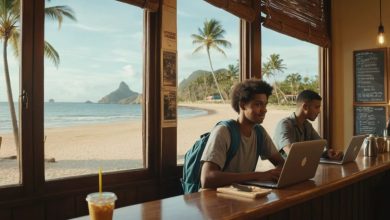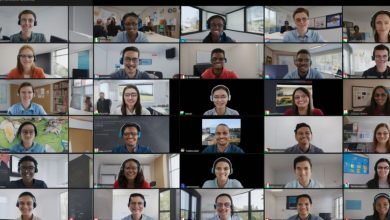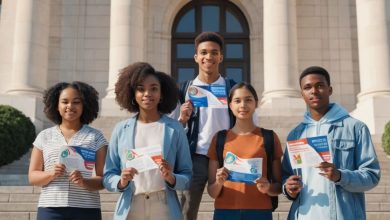Securing a Cultural Exchange Visa: Requirements Explained
Cultural exchange programs offer a unique opportunity to learn, grow, and experience life in a different country. But before you can pack your bags and embark on a transformative journey, there’s one essential hurdle to clear: securing a cultural exchange visa. This comprehensive guide walks you through the visa process, eligibility criteria, required documentation, and actionable steps to improve your chances of approval.
What Is a Cultural Exchange Visa?
A cultural exchange visa is a type of non-immigrant visa that allows individuals to participate in cultural, educational, or professional exchange programs abroad. It’s designed for people who want to share their own culture while gaining insight into another.
This visa category is commonly associated with programs such as:
-
Student exchanges
-
Internships and professional training
-
Teaching and research opportunities
-
Au pair placements
-
Camp counselor roles
For example, in the United States, this is commonly known as the J-1 visa, though other countries may have similar programs under different names.
Main Requirements for a Cultural Exchange Visa
Proof of Participation in an Approved Exchange Program
To apply for a cultural exchange visa, you must first be accepted into a government-recognized or officially designated program. This usually involves obtaining a sponsorship from an approved organization that issues the necessary participation form (like Form DS-2019 for U.S. applicants).
Proof of Financial Support
You must demonstrate that you can financially support yourself for the duration of your stay. Acceptable evidence includes:
-
Bank statements showing sufficient funds
-
Sponsor letters confirming financial support
-
Scholarship or grant award letters
Each program sets its own minimum thresholds, so it’s critical to confirm the amount required in advance.
Educational or Professional Background
Depending on the type of exchange, certain academic or professional qualifications may be necessary. For instance:
-
Interns may need to be enrolled in or recently graduated from a post-secondary institution
-
Research scholars often require advanced degrees
-
Teachers might need formal teaching credentials
Language Proficiency
Language ability is a key requirement, especially if the program involves teaching, studying, or working. You may need to demonstrate proficiency by:
-
Passing a language test (e.g., TOEFL, IELTS)
-
Undergoing an interview conducted in the host country’s language
-
Providing school transcripts or certificates of instruction
Medical and Background Checks
Many host countries require applicants to meet health and character standards. This may include:
-
Proof of health insurance coverage
-
Medical exams or immunization records
-
Criminal background checks or police clearance certificates
Step-by-Step Application Process
Get Sponsored by a Recognized Exchange Program
The first step is finding a program that aligns with your goals and is recognized by the country’s government. These sponsors will provide guidance, issue essential forms, and support your visa application.
Questions to ask potential sponsors:
-
Is your organization officially designated by the host government?
-
What types of support do you provide during the application process?
-
Are there fees or financial obligations I should know about?
Collect Required Documents
You’ll need to compile a complete application package. A typical checklist includes:
-
Passport valid for the duration of your program
-
Sponsorship form (e.g., DS-2019)
-
Financial evidence
-
Academic or employment records
-
Visa application form (e.g., DS-160)
-
Proof of language proficiency
-
Photos meeting visa specifications
Complete and Submit the Visa Application
Next, fill out the appropriate visa application form and pay any associated fees. For U.S. applicants, this includes:
-
Completing the DS-160 online
-
Paying the SEVIS fee
-
Scheduling a visa interview at your local embassy or consulate
Make sure your information is accurate and consistent across all documents.
Prepare for the Visa Interview
Your visa interview is your chance to present your case clearly and confidently. Tips for success:
-
Review your program details and why you chose it
-
Be ready to explain your financial situation and long-term goals
-
Stay honest and concise in your answers
-
Dress appropriately to make a good impression
Common interview questions:
-
Why did you choose this exchange program?
-
How will you support yourself financially?
-
What do you plan to do after the program ends?
Typical Timelines and Processing Periods
Visa timelines vary based on the country and time of year. On average:
-
Document preparation: 2–4 weeks
-
Sponsor processing and issuing of forms: 1–3 weeks
-
Visa application and interview scheduling: 2–6 weeks
-
Post-interview processing: 1–3 weeks
To avoid last-minute stress, it’s wise to begin the process at least 3–4 months before your intended travel date.
Common Reasons for Visa Denials and How to Avoid Them
Understanding why applications get rejected can help you strengthen yours. Here are frequent pitfalls:
-
Incomplete or inconsistent documents
Ensure all fields are complete and details match across forms. -
Lack of financial proof
Provide strong, verifiable evidence of your ability to fund your stay. -
Weak ties to home country
Demonstrate your intention to return, such as enrollment in a university, employment offers, or family commitments. -
Unclear program intentions
Be able to clearly explain what your program entails and how it fits your future plans.
Cultural Exchange Visa vs. Student Visa: Key Differences
| Feature | Cultural Exchange Visa | Student Visa |
|---|---|---|
| Purpose | Cultural learning, work-study | Academic study |
| Sponsor Requirement | Yes | No (only school acceptance) |
| Work Permission | Limited, program-specific | Limited, usually on-campus |
| Duration | Varies by program | Duration of study |
| Visa Type (U.S. example) | J-1 | F-1 |
Choosing the right visa depends on your objective. If your main goal is academic, a student visa might be better. If you’re looking for hands-on cultural engagement, the exchange route is ideal.
FAQs About Cultural Exchange Visas
Do I need a job offer to get a cultural exchange visa?
Not always. It depends on the program. Some require a pre-arranged placement, others offer matching services after acceptance.
Can I extend or change my visa status later?
Extensions may be possible within certain categories. Changing to a different visa type often requires returning to your home country.
What happens if my visa is denied?
You’ll receive a reason for denial. In some cases, you can reapply or submit additional documents to appeal.
Can I bring dependents with me?
Some programs allow dependents under a related visa category, but additional proof of funds and documentation are required.
Is it possible to work while on a cultural exchange visa?
Work is typically allowed only if it’s part of the program. Unauthorized work can jeopardize your visa status.
Final Checklist Before You Apply
-
Accepted by a designated cultural exchange program
-
Sponsorship documents received
-
Financial proof prepared and verified
-
Visa application form completed and fees paid
-
Interview scheduled with all required documents
-
Travel insurance and accommodations arranged
Final Thoughts
Securing a cultural exchange visa is a structured but rewarding process that opens the door to meaningful international experiences. With the right preparation, clear documentation, and a strong understanding of requirements, you can move forward with confidence. The effort you invest now will pay off in lifelong skills, friendships, and global insight.
Published on: 4 de June de 2025








